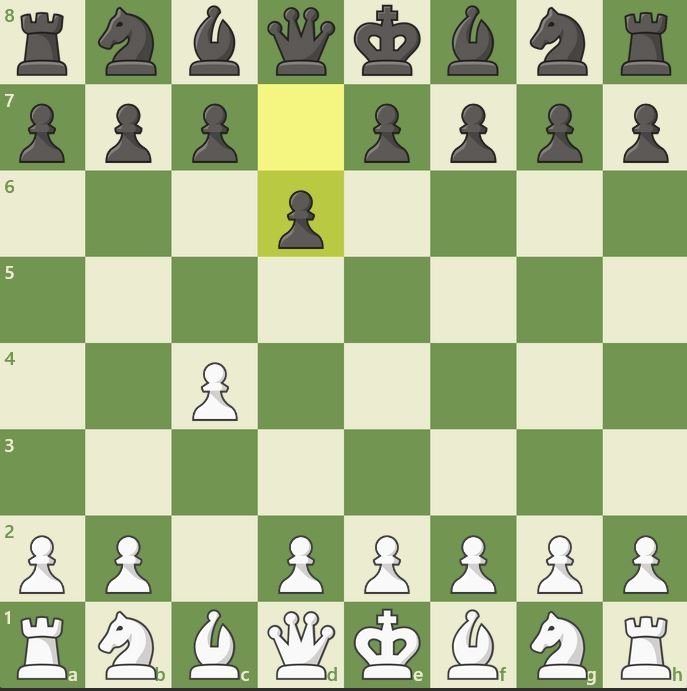1.c4 is the English Opening, a flexible and strategic opening that aims to control the center (especially the d5 square) from the flank, rather than with an immediate central pawn push like 1.e4 or 1.d4.
♟️ Key Concepts of the English Opening (1.c4):
- Control of central squares (especially d5) from the side.
- Often transposes into other openings, including the Réti, Queen’s Gambit, or even King’s Indian Attack/Defense.
- Can lead to both slow, strategic battles or dynamic tactical fights, depending on setup and opponent’s responses.
♜ Common Variations of the English Opening:
1. Symmetrical Variation
1.c4 c5
- Black mirrors White’s move. Can lead to rich, balanced positions.
- Often followed by Nc3, g3, Bg2, heading for a fianchetto setup.
2. Reversed Sicilian
1.c4 e5
- This is like playing the Sicilian Defense, but with colors reversed.
- White typically continues with Nc3, g3, Bg2, aiming for a long-term positional edge.
3. English with King’s Indian Setup
1.c4 Nf6 2.Nf3 g6 3.g3 Bg7 4.Bg2 O-O
- Leads to a King’s Indian Defense type of structure, with colors reversed.
4. English–Botvinnik System
1.c4 Nf6 2.Nc3 e6 3.g3 d5 4.Bg2 Be7 5.Nf3 O-O 6.O-O c5 7.d4
- A rich, classical approach with central tension and long-term planning.
♞ Transpositional Nature:
The English Opening is extremely transpositional — meaning it can easily lead into other openings depending on how Black responds. For example:
- Can become the Catalan with d4 + g3 setups.
- Can resemble the Queen’s Gambit Declined if White plays d4 and c4.
- Can become the Réti after Nf3 + c4, especially with fianchetto development.
